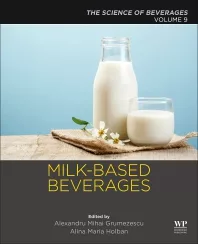ISBT, Cetie form collaborative development agreement
Partnership to generate global beverage industry voluntary guidelines
ISBT and Cetie announced a formal agreement of a novel collaborative approach to jointly develop and distribute global beverage industry voluntary guidelines.
This agreement allows both organizations to utilize a new shared platform to create guidelines and document best practices within their respective memberships in Europe and North America, the companies says. The result will be a unified guideline that can be used by global brands and their suppliers while creating, producing, and packaging their products.
Both organizations often address the same topics in the beverage industry. ISBT and Cetie now will combine efforts and co-produce harmonized guidelines, nomenclatures, specifications, or test methods that provide consistency across the global beverage industry.
“Now anyone in the global beverage industry wishing to adopt the best of industry practice can access guidelines from both ISBT and Cetie,” said Larry Hobbs, executive director of ISBT, in a statement. “Gone are the days of silos by regional area, and the various regionalization of protocols, which added cost and confusion at brand and supply side companies.”
As a secondary benefit, most common problems are global, not regional. “Now solutions can be quickly adopted for the largest consumer markets,” said Josquin Peyceré, secretary general of Cetie, in a statement. “Consumers today are concerned about the safety and security of all food products. This agreement will leverage the best in beverage industry technical knowledge in responding to development of new beverages, processes, and packaging.”
As part of this agreement, both organizations are launching their first jointly produced guideline. A significantly updated Plastic Bottle Closure Qualification Test Manual will soon be made available to the public. The manual will allow brands and suppliers to reduce qualification costs and prove out new lightweight closure designs. This is a win — both economically and for improved sustainability — for the global beverage industry, the companies say. The industry can expect more collaborative efforts soon.
Looking for a reprint of this article?
From high-res PDFs to custom plaques, order your copy today!




